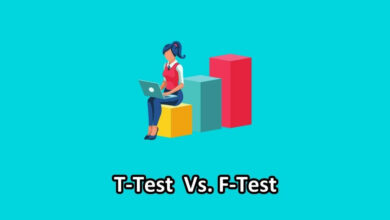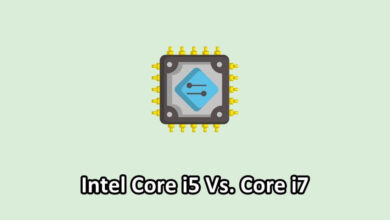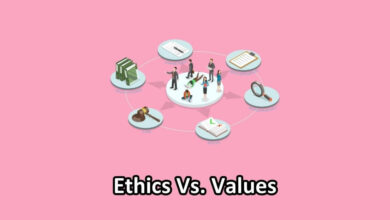Are you ready to dive into the ultimate battle of mobile technology? Today, we are uncovering the key distinctions between two heavyweight contenders: iPhone vs Smartphone. As our lives become increasingly intertwined with these pocket-sized marvels, it’s time to unravel their unique features, capabilities, and performance.
So fasten your seatbelts and join us on this thrilling journey as we delve into the world of smartphones and discover what sets the iconic iPhone apart in this fierce competition!
iPhone Vs Smartphone (Comparison Table)
| iPhone | Smartphone |
|---|---|
| An iPhone is a line of smartphones developed by Apple. iPhones are known for their sleek design, premium build quality, quality camera, and integration with Apple’s ecosystem of products and services. | A smartphone is a versatile mobile device that goes beyond traditional calling and texting functions. It typically features a touchscreen interface, allowing users to interact with various applications and services. |
| iPhone is produced exclusively by Apple. | Smartphones are produced by a variety of different companies like Samsung, Motorola, LG, and HTC. |
| iPhones come with the iOS operating system. | Smartphones use the Android operating system. |
| iPhone cameras tend to produce higher-quality images than most standard smartphones due to their superior lenses and image processing technology. | The camera quality of smartphones can vary widely between different smartphone models and brands. |
| Apple offers exclusive apps not available on other devices such as FaceTime and iMessage, as well as features like AirDrop that are not found on non-Apple devices. | Smartphones have access to a much wider range of third-party apps and services. |
| The price range for iPhones is typically higher than that of most other smartphones. | Smartphones have varied price ranges based on brand and features |
| Apple is known for its stringent security protocols, providing extra layers of protection against malware and other malicious threats. | Smartphones can also offer some degree of protection, but the security measures are not as robust as Apple’s. |
| iPhone offers an integrated ecosystem with data syncing, iCloud, and Apple Pay. | Andriod smartphones comparatively offer less integrated syncing and services. |
What is an iPhone?

An iPhone is a line of smartphones that are manufactured by Apple Inc. The first iPhone was released on June 29, 2007. As of September 2016, Apple has sold more than 1 billion iPhones worldwide.
An iPhone runs on the iOS operating system (OS), which is designed by Apple. The iOS OS is based on the Mac OS X operating system used on Apple’s Macintosh computers. iPhone users can access the App Store, which offers more than two million apps, including games, productivity apps, and social networking apps.
What is a Smartphone?

A smartphone is a mobile device that combines the features of a cellular phone with the functions of a computer. Smartphones typically come with an internet connection, allowing users to access the internet as well as download apps, play games, take photos and videos, listen to music, and more.
Smartphones have become increasingly popular over the past decade, with more and more people relying on their phones for a variety of tasks. They run on either the Android or iOS operating systems and come with a range of features, including touchscreens, cameras, GPS navigation, and access to social media sites.
Pros and Cons of Using an iPhone vs. a Smartphone
Pros of iPhone
- User-friendly Interface: The user-friendly interface of the iPhone makes it easy to use and navigate.
- High-Quality Camera: The high-quality camera on iPhones allows you to take great photos and videos.
- Large App Selection: The App Store has a large selection of apps for almost any purpose imaginable.
- Accessibility: iPhones are accessible from multiple devices, making them easy to access from anywhere.
- Durability: iPhones are known for their durability, making them last longer than most other phones.
Cons of iPhone
- Expensive Price Tag: The price tag is often one of the biggest drawbacks of iPhones as they can be quite expensive compared to other phones on the market.
- Apple Ecosystem Restrictions: Apple’s ecosystem limits the types of applications and content that can be used on its products, which can be limiting for some users depending on their needs and preferences.
- Lack of Customization Options: The iPhone offers limited customization options, which means that users cannot customize the look and feel of their home screen or other aspects of their phone.
- Battery Life: The battery life on iPhones can be relatively short compared to some other phones, which can be inconvenient for users who rely on their phones for long periods of time.
Pros of Smartphones
- More Affordable Prices: Smartphones are generally more affordable than iPhones, which makes them more accessible to a wider range of people.
- More Storage Space: Most smartphones offer more storage space than iPhones, making it easier for users to store large amounts of data or applications without having to worry about running out of space.
- Variety Of Operating Systems: Smartphones offer a variety of operating systems, including Android and Windows Phone, allowing users to choose the system they prefer and customize it to their own needs.
- Customization Options: Unlike iPhones, most smartphones offer a variety of customization options that allow users to personalize the look and feel of their devices according to their preferences.
- Better Battery Life: The battery life on most smartphones is generally better than the battery life on iPhones, making them more suitable for long-term use.
Cons of Smartphones
- Less Reliable Security: Smartphones are generally less secure than iPhones, which can leave users vulnerable to malicious software or hacking attempts.
- Lower Quality Cameras: The camera quality on most smartphones is not as good as what you get with an iPhone, which can be a downside for users who rely heavily on their phones for capturing photos and videos.
- Lack Of Consistent Updates: Most smartphones do not receive consistent updates from their manufacturers, meaning that users may miss out on important security patches or new features if they do not update their devices regularly.
- Shortened Lifespan: Most smartphones have a shorter lifespan than iPhones, meaning that they need to be replaced more often in order to maintain optimal performance and functionality.
- Limited App Selection: The app selection available for most smartphones is much smaller than the selection available in the Apple App Store, which can be inconvenient for users who need access to specific applications or services.
Key Differences Between iPhones and Smartphones
- Brand: The most obvious difference between iPhones and smartphones is the brand. Apple produces the iPhone, while there is a wide range of smartphone brands available on the market, such as Samsung, Motorola, LG, and HTC.
- Camera Quality: iPhone cameras tend to produce higher-quality images than most standard smartphones due to their superior lenses and image processing technology.
- Apps & Features: Apple offers exclusive apps not available on other devices such as FaceTime and iMessage, as well as features like AirDrop that are not found on non-Apple devices. Smartphones have access to a much wider range of third-party apps and services, however.
- Privacy & Security: Apple is known for its stringent security protocols, providing extra layers of protection against malware and other malicious threats. Smartphones can also offer some degree of protection, but the security measures are not as robust as Apple’s.
- Ecosystem: Apple offers an integrated ecosystem that allows users to sync data across multiple Apple devices and access features such as iCloud and Apple Pay from any device they own. Android smartphones don’t have this same level of integration, although there are some services available for syncing data between different devices running Android OS.
Which is better for you: iPhone or Android
There are many different types of smartphones on the market today, but the two most popular are the iPhone and Android. So, which is better for you: iPhone or Android?
Here are some key distinctions between the two to help you decide:
- Operating System: The iPhone uses Apple’s iOS operating system, while Android phones use Google’s Android operating system. Each has its own unique features and benefits.
- App Availability: There are more apps available for the iPhone than for Android phones. However, many popular apps are available for both platforms.
- Hardware: The iPhone typically has higher-quality hardware than Android phones. However, there are some high-end Android phones that compete with the iPhone in terms of quality.
- Price: The iPhone is typically more expensive than Android phones. However, there is a wide range of prices for both types of phones, so it’s important to compare apples to apples when making your decision.
The Future of iPhone and Android
The iPhone and Android operating systems have been in constant competition with each other since the release of the first iPhone in 2007. In the intervening years, both operating systems have seen significant changes and improvements. So, what does the future hold for these two industry giants?
In the short term, we can expect to see more refinements and improvements to both iOS and Android. Apple is likely to continue its focus on delivering a premium user experience, while Google will continue to try and make Android more accessible to a wider range of users.
In the longer term, it’s difficult to predict exactly what will happen. However, it seems likely that Apple and Google will continue to compete fiercely against each other, innovating and improving their respective operating systems in an attempt to stay ahead of the other.
Conclusion
With all this in mind, it’s clear that there are significant differences between the iPhone and other smartphones when it comes to features, design, and performance. The main distinction lies in Apple’s software integration with its hardware, allowing for a seamless user experience. Ultimately, which type of phone you choose will depend on your individual needs; however, we hope this article has provided you with some insight into how both of these devices compare.
FAQs
Q. Is iPhone and smartphones the same?
Answer: No, an iPhone is a type of smartphone made by Apple. There are also other types of smartphones available such as Android and Windows Phone.
Q. What makes iPhone different from other phones?
Answer: iPhone stands out from other smartphones in a few key ways. iPhones have exclusive features such as the App Store, Face ID, and Apple Pay. They also typically have higher-end hardware than other phones, like OLED screens and faster processors. Additionally, iPhones run on the iOS operating system which is optimized for Apple devices.



